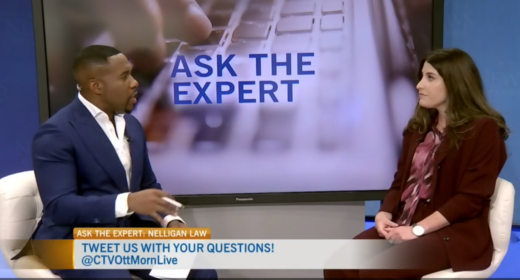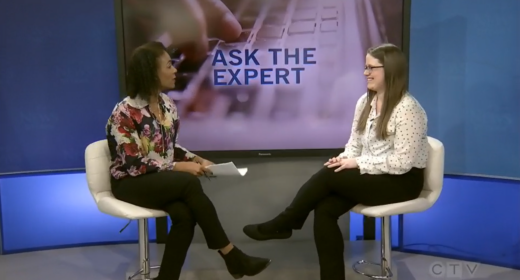What do you do if you decide you no longer want the job? What do you do if the beneficiaries decide they don’t want you to be Estate Trustee anymore?
Being an estate trustee isn’t an easy job. An estate trustee must make the funeral arrangements, figure out what assets are included in the estate, contact the banks and other financial institutions, clean out the deceased’s house, and determine what taxes have to be paid. There is also a lot of paperwork to be done, lots of interaction with government agencies, registries and lawyers. In some cases, there are beneficiaries putting pressure to do things more quickly. If all of that weren’t enough, the estate trustee risks personal liability for any mistakes he or she makes.
The person named in the Will as an estate trustee may begin to act immediately following the testator’s death. The Will does not necessarily have to be submitted to the Court with an application for a Certificate of Appointment of Estate Trustee. For example, if most assets are held jointly with a spouse, it may be possible to complete all the necessary transfers without applying for a Certificate of Appointment. However, if the estate holds real property and there is no surviving owner holding the property as a joint tenant with the deceased, or if the value of the assets held in bank or investment accounts is fairly large, it is very likely that it will be necessary to obtain a Certificate of Appointment of Estate Trustee.
Five Major Duties of an Estate Trustee
The duties of an estate trustee can be summarized into these five most important tasks:
- To obey the directions of the Will.
- To act impartially between the beneficiaries.
- To exercise ordinary care and prudence in administering the estate assets.
- To place trust duties before his or her own personal interest.
- To be ready to account for the work done.
Failure to perform any of these duties may make the estate trustee personally liable for breach of trust and provide grounds for any disgruntled beneficiary to bring an application to have the estate trustee removed.
Removal of an Estate Trustee
The Ontario Trustee Act provides authority to remove an estate trustee. In determining whether or not to remove an estate trustee, the Courts will consider the following factors:
- The testator’s choice of estate trustee must not be lightly interfered with, and is to be done only in cases of clear necessity.
- If the conflict between the estate trustee and a beneficiary is of long standing then it must be presumed that the testator knew about it when he made the Will, so such antipathy alone will not justify overriding the wishes of the deceased.
- The evidence must be clear that removal is justified and there is no other course to follow.
- The main concern of the court should be the welfare of the beneficiaries.
- The onus is on the moving party to show that in the absence of removal and replacement of the trustee, it is likely the trust will not be properly executed.
- Mere friction with a beneficiary is insufficient. The evidence must demonstrate that the antipathy towards the beneficiary is such that it will prevent the proper administration of the estate.
It is the duty of the Court to ensure that the purpose of the trust is respected and carried out. As such, a testator’s choice of estate trustee will not easily be disregarded.
You’re Fired – By Court Order
The Ontario courts have a statutory authority to remove an estate trustee. The removal of an estate trustee must be done by court application. These applications are often commenced by disgruntled beneficiaries or frustrated co-estate trustees who believe that the person in charge of administering the estate is being unfair and/or dishonest. For example, sometimes, to avoid any fighting between the beneficiaries, an estate trustee might feel that they have a better or “more fair” idea of how to distribute the estate. That is a mistake – it is not the job of an estate trustee to re-write the Will. In Ontario, the courts have removed estate trustees for such misconduct.
In Libman v. Feldberg, for example, the deceased left some money to charities but left the bulk of her estate to her daughter. In the Will, the deceased’s personal belongings were to be given to her daughter, who in her absolute discretion could decide how they should be divided between herself and the deceased’s grandchildren. The estate trustee ignored this provision of the Will and told the deceased’s niece that she should take whatever she wanted from the estate. The daughter disagreed with the actions of the estate trustee, and the Court agreed. The Court found that the estate trustee did not carry out his duties in a completely impartial manner, which resulted in a degree of hostility and distrust such that the estate trustee could not continue to carry out their duties impartially and objectively. The estate trustee was removed and the missing items were returned to the Estate.
I Quit! – On Consent
The estate trustee always has the autonomy to decide that they cannot continue with their duties for personal reasons and request that another person be named as estate trustee. Whatever the reason, an estate trustee can renounce the appointment as estate trustee. If you decide that you don’t want the job before the Certificate of Appointment of Estate Trustee has been granted and before you have started to administer the assets of the estate, then the process is fairly simple. All that needs to be done is to complete a Renunciation of Right form.
However, if a Certificate of Appointment of Estate Trustee has already been obtained and the estate trustee wishes to step down, it is still possible but it is a little bit more complicated. A court application must be commenced and the court must order the removal. The estate trustee must obtain consent of the beneficiaries to quit the job. They must also obtain consent of the beneficiaries to the selection of the replacement estate trustee, as they are entitled to a share in the distribution of the remaining estate and who together have a majority interest in the value of the assets remaining in the estate.
To determine who should be named as the replacement estate trustee, the Will should be reviewed to determine whether an alternate has been named. If one has, then he or she is entitled to be the replacement estate trustee. If no alternate has been named, and a new estate trustee is necessary, then in some circumstances it may be appropriate for one of the beneficiaries to be appointed. In other circumstances, it might be appropriate for a trust company or a professional, such as a lawyer or accountant, to be appointed as the replacement estate trustee.
What has to be done before an estate trustee leaves the job?
Regardless of whether the estate trustee is fired or quits the job, before the estate trustee terminates their duties, they must pass their accounts. “Passing accounts” is a process of obtaining the court approval of the estate trustee’s accounts. The estate trustee has a duty to account to the beneficiaries and to provide copies of all the records relating to the administration of the estate.
What is most important is to seek professional advice if you want to quit the job of being an estate trustee, or if you encounter dissatisfied beneficiaries who want to remove you from your duty as estate trustee.
Marcia A. Green is an associate lawyer with the Ottawa law firm of Nelligan O’Brien Payne LLP (www.nelligan.ca) and a member of the Wills and Estates Practice Group.
This article originally appeared in Fifty-Five Plus Magazine in January/February 2017.


